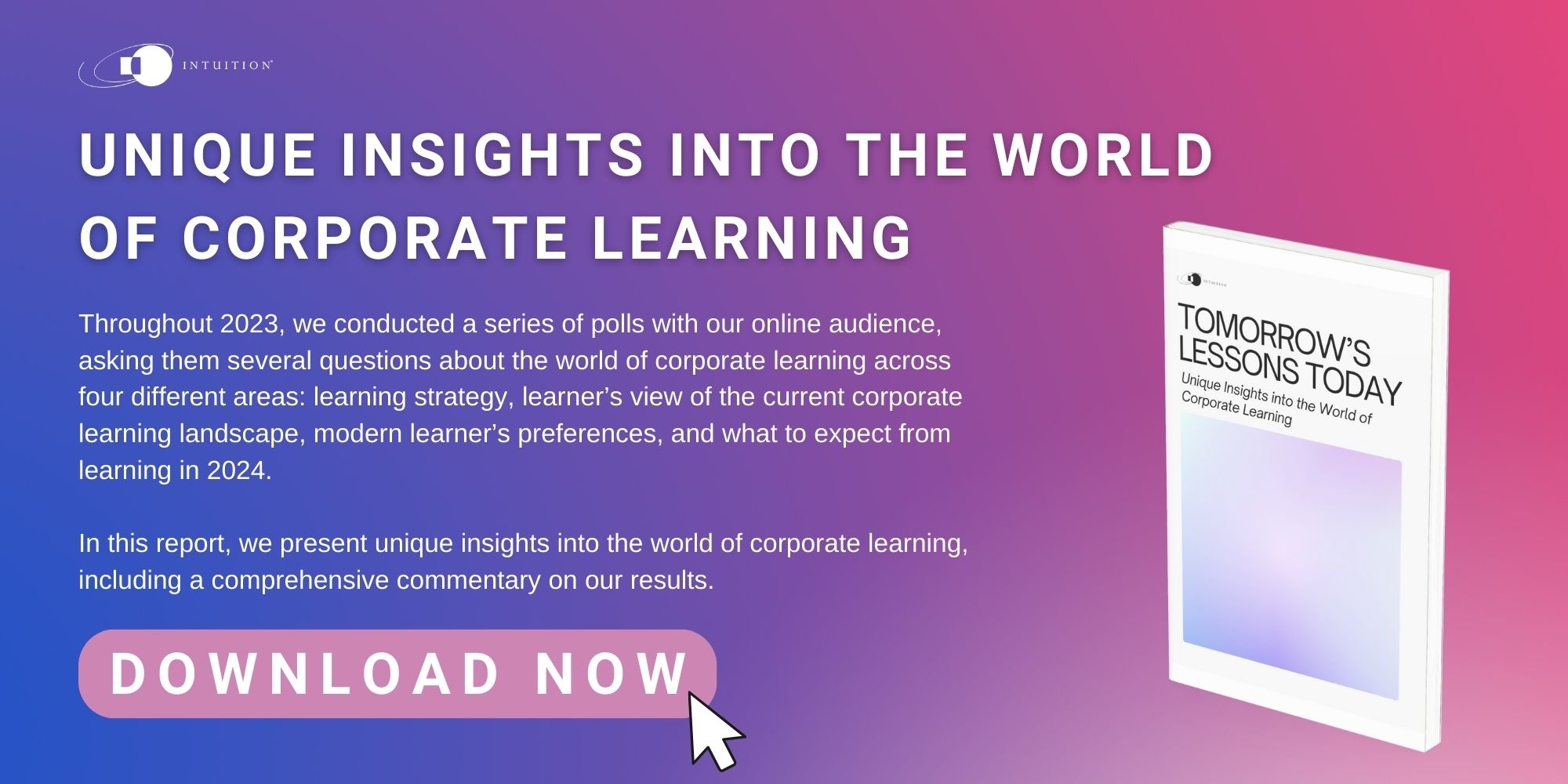Navigating today’s business challenges: The importance of L&D in 2024
In the face of ongoing business transformation and upcoming challenges in 2024, learning and development (L&D) efforts have become critical for organizational success.
Some of the key business challenges identified for 2024 include current economic instability, technological advances, talent shortages, climate change, and data security threats.
This article outlines how organizations can navigate these evolving business obstacles by enhancing their L&D strategy and overall learning culture.

Why invest in L&D in 2024?
Economic instability
The current economic state is predicted to be further impacted by inflation and economic downturn, as the International Monetary Fund (IMF) lowered its prediction for global growth in 2024. Rising dangers of financial instability and recession creates additional factors for hardships by organizations.
To help mitigate and manage these hardships, L&D supports cross-training and upskilling of the workforce, increasing efficiencies across all lines of business. Furthermore, the very nature of L&D makes internal hiring more feasible, reducing onboarding resources during low periods of growth.

Automation and technological advances
The advance of automation and technologies such as artificial intelligence, 5G, Blockchain, the Cloud, and Internet of Things (IoT) will continue to accelerate this year. By 2025, it is predicted that 85 million jobs will be displaced, and 97 million new roles may emerge that are more adapted to the new division of labor between humans, machines, and algorithms. In this new labor market, the World Economic Forum (WEF) predicts that 50% of all employees will need reskilling.
As such, organizations must rethink their processes and ensure their employees have the skills necessary in a tech-driven world where we increasingly collaborate with and leverage intelligent machines. By investing in L&D, organizations can help their employees understand the latest industry trends and technologies, supporting the transition to new roles, and creating a versatile, agile workforce.
[Upskilling and reskilling: The benefits of investing in your employees’ futures]

Talent shortages
Companies across all industries, but particularly in finance, are struggling with significant skill gaps for the future. The post-COVID-19-pandemic workplace has also caused many employees to rethink their careers or shift their workplace demands, ranging from development opportunities to hybrid-working policies, resulting in widespread resignations across various industries.
To prepare for the fourth industrial revolution, employers will need to reskill or upskill significant portions of their workforce and encourage retention by investing in employees. This can be accomplished through the creation and nurturing of a working environment that is suitable for the modern workplace, including employment flexibility, authentic leadership, and diversity to entice top talent.
Moreover, implementing early careers programs with a focus on long-term graduate integration and development will support the talent pipeline, improving satisfaction rates and reducing the likelihood of turnover in an increasingly competitive recruitment arena.
[Keeping your best talent: Strategies to improve employee retention]

Climate change and environmental regulation
Addressing climate change is one of the world’s largest environmental, humanitarian, and business challenges. Transparency in sustainability practices is being demanded by both consumers and government organizations, increasing the Environmental, Social and Governance regulations (ESG) both in number and complexity.
Investing in ESG L&D can help employees stay up to date with new requirements and their impacts and ensure that the organization is compliant with new regulations. Being measurably more sustainable can help find efficiencies and savings that can improve your bottom line, in addition to making a difference in this global challenge.
[Discover the different ways we are helping our clients with ESG]

Data security threats
Ransomware, phishing scams, and cyberattacks are all on the rise as businesses grow their digital presence. Mobile devices are not exempt from cybersecurity risks, as scammers find new ways and channels to target companies with their increase of online data.
In addition to the proactive measures organizations can take regarding testing and vulnerability scanning, L&D will equip employees with adequate cyber-awareness training and prevention tactics to reduce phishing and cyber attacks via both mobile and desktop channels.
Moving forward
Economic instability, technological advances, talent shortages, climate change, and data security threats have brought about what is surely a disruptive period for workforce planning. The various benefits of investing in L&D showcase the need for L&D to not be a mere box-checking exercise, but a fundamental part of overall business strategy to address the external obstacles that lie ahead in 2024.
Fostering a culture of continuous improvement helps to create an environment where employees are constantly seeking to improve their skills and abilities, leading to an innovative, efficient, and adaptive organization in what is a rapidly-changing business environment.

